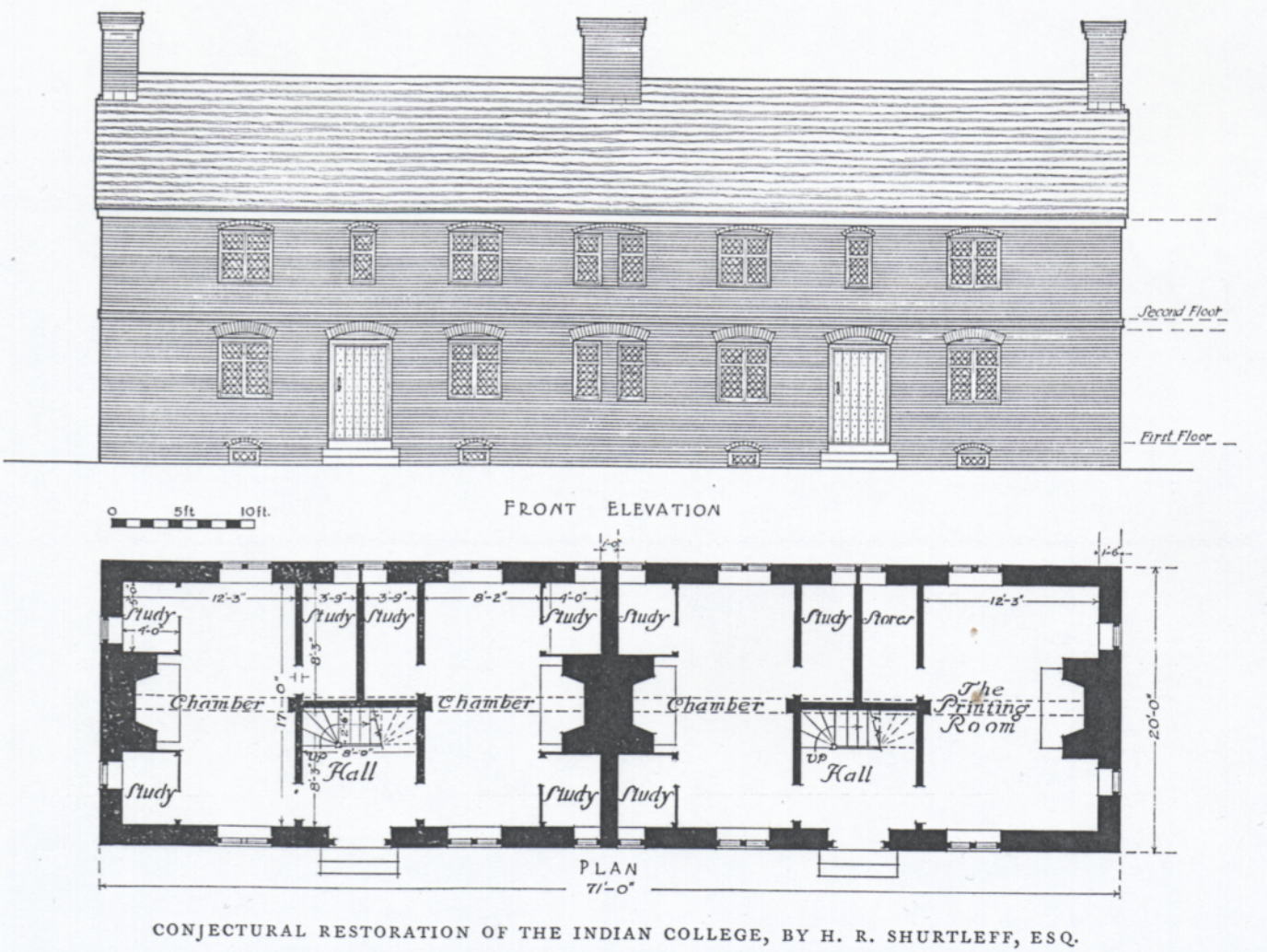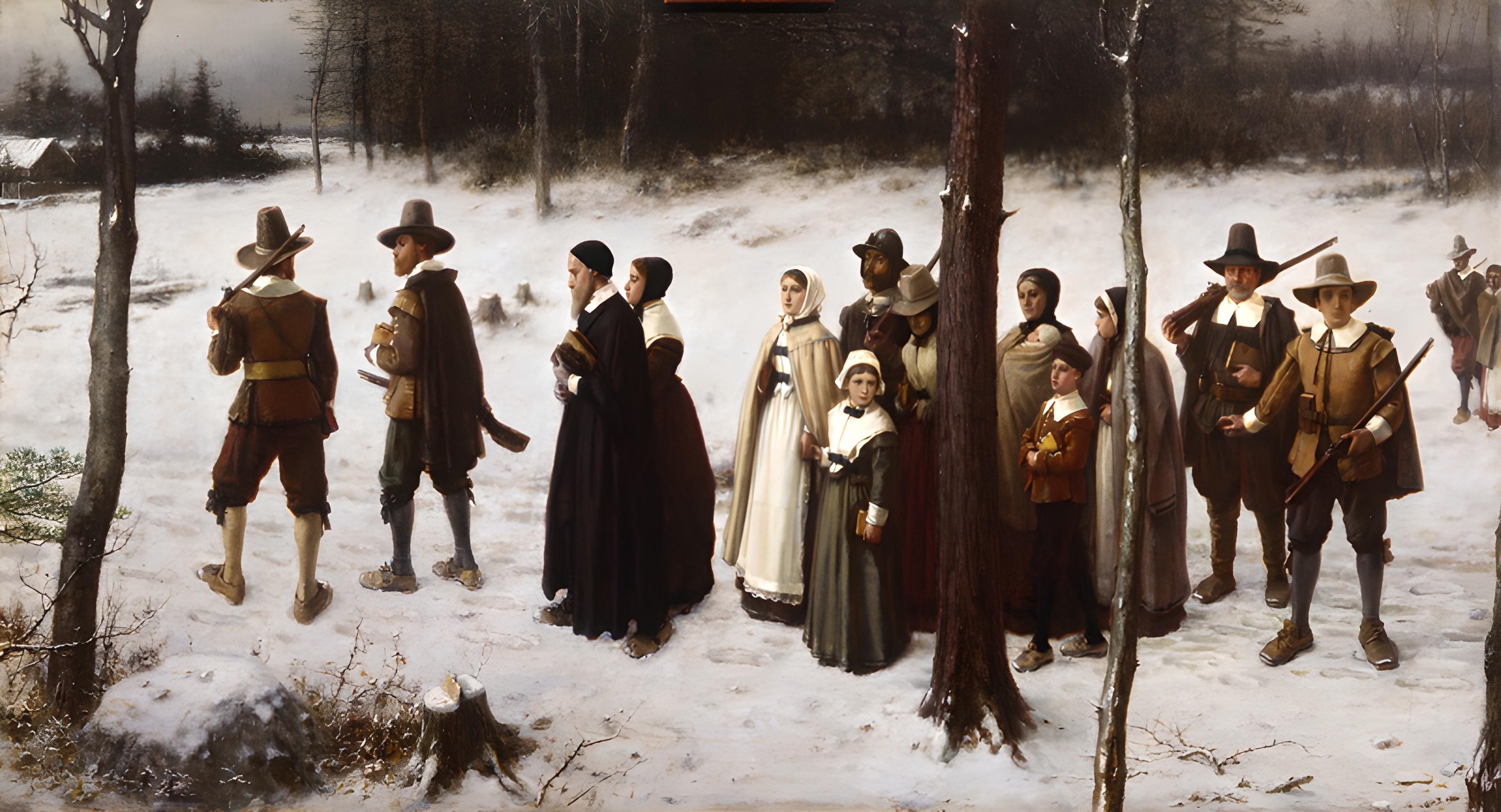|
Hiacoomes
Hiacoomes (~1610s – 1690) was a Wampanoag American Indian from the island of Martha's Vineyard, (Wampanoag: ), who in 1643 became the first member of his society to convert to Christianity under the tutelage of the missionary Thomas Mayhew Jr. He would then, with the assistance of Mayhew, become a leading preacher to his fellow Wampanoag on the island, playing a major role in the widespread conversion of the Wampanoag from their traditional beliefs to Christianity. Early life and contact with the English Little is known of Hiacoomes' early life except that he was of 'mean' descent and described as "a man of a sad and sober spirit" who had a low ranking in the then existing social hierarchy of the Wampanoag. In 1639 the first English settlement of the island, under the direction of Thomas Mayhew Senior, had begun at Edgartown. Hiacoomes took an unusual interest in these newcomers and eventually began to form relationships with some of the English with whom he visited in thei ... [...More Info...] [...Related Items...] OR: [Wikipedia] [Google] [Baidu] |
Joel Hiacoomes
Joel Hiacoomes (1665) was one of the first Native American students at Harvard University. Life Joel Hiacoomes, son of Hiacoomes, the Wampanoag interpreter for missionary Thomas Mayhew, was born into the Wampanoag Tribe on Martha's Vineyard, traditionally Noepe. Joel and his classmate Caleb Cheeshahteaumuck, also a Wampanoag, were taught on the Vineyard by Peter Folger, the maternal grandfather to Benjamin Franklin. The two went on to attend Elijah Corlett's grammar school in Cambridge in around 1657. In 1661 they both entered Harvard's Indian College. Joel Hiacoomes and Caleb Cheeshahteaumuck were both set to graduate from Harvard in 1665; however, only Caleb received his degree. Harvard and death Joel Hiacoomes was set to be named Harvard valedictorian, but died before graduation in a shipwreck, after robbers pounced on the shipwreck survivors. The boat Joel sailed on was found wrecked on the shores of Nantucket Island. Legacy In the time that Joel attended Harvard, two ... [...More Info...] [...Related Items...] OR: [Wikipedia] [Google] [Baidu] |
Martha's Vineyard
Martha's Vineyard, often simply called the Vineyard, is an island in the Northeastern United States, located south of Cape Cod in Dukes County, Massachusetts, known for being a popular, affluent summer colony. Martha's Vineyard includes the smaller adjacent Chappaquiddick Island, which is usually connected to the Vineyard. The two islands have sometimes been separated by storms and hurricanes, which last occurred from 2007 to 2015. It is the 58th largest island in the U.S., with a land area of about , and the third-largest on the East Coast, after Long Island and Mount Desert Island. Martha's Vineyard constitutes the bulk of Dukes County, which also includes the Elizabeth Islands and the island of Nomans Land. The Vineyard was home to one of the earliest known deaf communities in the United States; consequently, a sign language, the Martha's Vineyard Sign Language, emerged on the island among both deaf and hearing islanders. The 2010 census reported a year-round pop ... [...More Info...] [...Related Items...] OR: [Wikipedia] [Google] [Baidu] |
Massachusett Language
The Massachusett language is an Algonquian language of the Algic language family, formerly spoken by several peoples of eastern coastal and southeastern Massachusetts. In its revived form, it is spoken in four communities of Wampanoag people. The language is also known as or (Wampanoag), and historically as , Indian or . The language is most notable for its community of literate Native Americans and for the number of translations of religious texts into the language. John Eliot's translation of the Christian Bible in 1663 using the Natick dialect, known as '' Mamusse Wunneetupanatamwe Up-Biblum God'', was the first printed in the Americas, the first Bible translated by a non-native speaker, and one of the earliest examples of a Bible translation into a previously unwritten language. Literate Native American ministers and teachers taught literacy to the elites and other members of their communities, influencing a widespread acceptance. This is attested in the numerous court ... [...More Info...] [...Related Items...] OR: [Wikipedia] [Google] [Baidu] |
Indian College
The Indian College was an institution established in the 1640s in order to educate Native American students at Harvard College in the town of Cambridge, in the Massachusetts Bay Colony. The Indian College's building, located in Harvard Yard, was completed in 1656. It housed a printing press used to publish the first Bible translated into a Native American language, the Eliot Indian Bible of 1663, which was also the first Bible in any language printed in British North America. The Indian College was supported financially by the Society for the Propagation of the Gospel in New England, a Christian missionary charity based in London. It attracted only a handful of students and was closed in 1693, after which the building was demolished and its bricks used for another construction in Harvard Yard. Some Native American students, however, attended Harvard afterwards. In 1997, the authorities of Harvard University installed a plaque commemorating the Indian College. In 2009, remna ... [...More Info...] [...Related Items...] OR: [Wikipedia] [Google] [Baidu] |
Thomas Mayhew
Governor Thomas Mayhew, the Elder (March 31, 1593 – March 25, 1682) established the first European settlement on Martha's Vineyard, Nantucket and adjacent islands in 1642. He is one of the editors of the Bay Psalm Book, the first book published in the Thirteen Colonies. His assistant Peter Foulger was the grandfather of Benjamin Franklin. Biography Thomas Mayhew was born in Tisbury, in the county of Wiltshire in England. He married Anna (also called Hanna and Abigail) Parkhurst, born about 1600, in Hampshire, England, daughter of Matthew Parkhurst. In 1621 they had a son, Thomas, the Younger, baptised in Hanna's home town of Southampton. Two years later they had another child, Robert Mayhew, baptized in Tisbury. The family left England in 1631/2 during the Great Migration of Puritans that brought 20,000 settlers to Massachusetts in thirteen years. Through the agency of Matthew Cradock of London, Mayhew had been appointed to manage properties in Medford, Massachusett ... [...More Info...] [...Related Items...] OR: [Wikipedia] [Google] [Baidu] |
Edgartown
Edgartown is a tourist destination on the island of Martha's Vineyard in Dukes County, Massachusetts, United States, for which it is the county seat. It was once a major whaling port, with historic houses that have been carefully preserved. Today it hosts yachting events around its large harbour. It includes the smaller island of Chappaquiddick. Edgartown is a part of Massachusetts's 9th congressional district, represented in the Massachusetts Senate as a portion of the Cape and Islands district. The town's population was 5,168 at the 2020 census. History In 1642, Rev. Thomas Mayhew, Jr. led a group of families to start a colony on the island after its purchase by his father Thomas Mayhew. Originally called ''Great Harbor'', it was incorporated on July 8, 1671, as ''Edgar Towne'', named for Edgar, whose father James II of England, was heir presumptive to the English throne. Those who chose the name to honor the monarchy did not know Edgar had died at the age of three on J ... [...More Info...] [...Related Items...] OR: [Wikipedia] [Google] [Baidu] |
James Axtell
James L. Axtell (born December 20, 1941 in Endicott, New York) is an American historian. He was a professor of history at the College of William and Mary in Williamsburg, Virginia. Axtell, whose interests lie in American Indian history and the history of higher education, was the William R. Kenan, Jr. Professor of Humanities. He was elected a Fellow of the American Academy of Arts and Sciences in 2004. Axtell retired at the end of the spring 2008 semester, although he taught a class at Princeton University in the fall of 2009. Books * * * * * *: History Book Club;Gilbert Chinard
[...More Info...] [...Related Items...] OR: [Wikipedia] [Google] [Baidu] |
People From Aquinnah, Massachusetts
A person ( : people) is a being that has certain capacities or attributes such as reason, morality, consciousness or self-consciousness, and being a part of a culturally established form of social relations such as kinship, ownership of property, or legal responsibility. The defining features of personhood and, consequently, what makes a person count as a person, differ widely among cultures and contexts. In addition to the question of personhood, of what makes a being count as a person to begin with, there are further questions about personal identity and self: both about what makes any particular person that particular person instead of another, and about what makes a person at one time the same person as they were or will be at another time despite any intervening changes. The plural form "people" is often used to refer to an entire nation or ethnic group (as in "a people"), and this was the original meaning of the word; it subsequently acquired its use as a plural form of p ... [...More Info...] [...Related Items...] OR: [Wikipedia] [Google] [Baidu] |
People From Edgartown, Massachusetts
A person ( : people) is a being that has certain capacities or attributes such as reason, morality, consciousness or self-consciousness, and being a part of a culturally established form of social relations such as kinship, ownership of property, or legal responsibility. The defining features of personhood and, consequently, what makes a person count as a person, differ widely among cultures and contexts. In addition to the question of personhood, of what makes a being count as a person to begin with, there are further questions about personal identity and self: both about what makes any particular person that particular person instead of another, and about what makes a person at one time the same person as they were or will be at another time despite any intervening changes. The plural form "people" is often used to refer to an entire nation or ethnic group (as in "a people"), and this was the original meaning of the word; it subsequently acquired its use as a plural form of p ... [...More Info...] [...Related Items...] OR: [Wikipedia] [Google] [Baidu] |
Converts To Protestantism From Pagan Religions
Religious conversion is the adoption of a set of beliefs identified with one particular religious denomination to the exclusion of others. Thus "religious conversion" would describe the abandoning of adherence to one denomination and affiliating with another. This might be from one to another denomination within the same religion, for example, from Baptist to Catholic Christianity or from Sunni Islam to Shi’a Islam. In some cases, religious conversion "marks a transformation of religious identity and is symbolized by special rituals". People convert to a different religion for various reasons, including active conversion by free choice due to a change in beliefs, secondary conversion, deathbed conversion, conversion for convenience, marital conversion, and forced conversion. Proselytism is the act of attempting to convert by persuasion another individual from a different religion or belief system. Apostate is a term used by members of a religion or denomination to refer to ... [...More Info...] [...Related Items...] OR: [Wikipedia] [Google] [Baidu] |
American Protestants
Protestantism is the largest grouping of Christianity in the United States, Christians in the United States, with its combined Christian denomination, denominations collectively comprising about 43% of the country's population (or 141 million people) in 2019. Other estimates suggest that 48.5% of the U.S. population (or 157 million people) is Protestant. Simultaneously, this corresponds to around 20% of the world's total Protestantism by country, Protestant population. The U.S. contains the largest Protestant population of any country in the world. Baptists in the United States, Baptists comprise about one-third of American Protestants. The Southern Baptist Convention is the largest single Protestant denomination in the U.S., comprising one-tenth of American Protestants. Twelve of the original Thirteen Colonies were Protestant, with only Maryland having a sizable Catholic Church, Catholic population due to George Calvert, 1st Baron Baltimore, Lord Baltimore's religious tolerance. ... [...More Info...] [...Related Items...] OR: [Wikipedia] [Google] [Baidu] |
1610s Births
Year 161 ( CLXI) was a common year starting on Wednesday (link will display the full calendar) of the Julian calendar. At the time, it was known as the Year of the Consulship of Caesar and Aurelius (or, less frequently, year 914 ''Ab urbe condita''). The denomination 161 for this year has been used since the early medieval period, when the Anno Domini calendar era became the prevalent method in Europe for naming years. Events By place Roman Empire * March 7 – Emperor Antoninus Pius dies, and is succeeded by Marcus Aurelius, who shares imperial power with Lucius Verus, although Marcus retains the title Pontifex Maximus. * Marcus Aurelius, a Spaniard like Trajan and Hadrian, is a stoical disciple of Epictetus, and an energetic man of action. He pursues the policy of his predecessor and maintains good relations with the Senate. As a legislator, he endeavors to create new principles of morality and humanity, particularly favoring women and slaves. * Aurelius red ... [...More Info...] [...Related Items...] OR: [Wikipedia] [Google] [Baidu] |



_1938.jpg)
.jpg)
